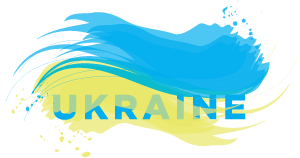Olena (69) is sitting on an old and worn folding bed in the gym hall of one of the local schools in the Polish town Przemyśl. She arrived 15 minutes earlier after crossing the border from Ukraine to Poland. Exhausted and heartbroken, she only managed to bring a few of her belongings. Everything else she left behind. A safe home through decades and her 44-year-old son and a young grandchild.
She gazes into a space of structured chaos. The school's gym has been turned into a makeshift camp to provide shelter for up to 350 people each day. A place where people can stay up to 2 days to regain their strength and figure out what to do next. “They will take care of my two cats,” she says and looks down. When she fled, she couldn’t bring her cats and some friends promised to feed them. A few days before ending up in Poland, Olena had left her hometown Kharkiv together with four of her neighbors. All of them elderly and the same age as Olena. They are sitting tired on a bed next to her. They are disorientated and in a state of shock. Trying to grasp what they have been going through the past days.
The exhaustion
In the gym, most people have passed out from exhaustion. An old man in a wheelchair needs help. He accidentally urinated his pants while family members went for registration next door. Kids are crying, others are playing. “A car leaves for Germany. Seats for three people. Germany! Four seats for people in another car going to Krakow… Leaving in 10 minutes”. The announcement in Ukrainian cuts through the noise of the loudspeakers. It is one of many locals working round the clock to help organize transportation away from the area. There is a constant flow of people going in and out of the gym hall. Some arrive, others are leaving.
Nothing left for the future
“I pray to be able to go back sometime soon,” Olena says while looking at four people struggling to help the old man out of his wheelchair. When the Russian bombs and missiles started destroying people’s homes and randomly kill citizens of Kharkiv, Olena was forced to flee. It was a quick decision to leave together with her neighbors. All of them being elderly, they decided to stick together to improve their chances. Before the invasion, Olena used to make excursions for tourists around her beautiful town. Now the fear of nothing being left to show in the future has taken over. That the cultural heritage and historic wonders will be destroyed in the daily rounds of shelling. Already Olena has seen severe damage of Kharkiv with her own eyes.
Olena
I pray to be able to go back sometime soon.
Destination Morocco
“My son and grandchild. They couldn’t leave…” Olena is desperate. She has planned to bring her neighbors to her daughter's place in Morocco. But first, they have to attend the Moroccan Embassy in Warsaw before being able to continue. “We will stay with my daughter until the war ends”, Olena says. Two hours later, volunteers carry their few belongings to the back of a van. Olena and her neighbors got a free ride to Warsaw by yet another volunteer.
Voices of the future
Portraits & stories by Martin Thaulow
Translations Ukrainian Katerina Chalenko
Stories in English Amalie Pi Sørensen
Олена (69 років) сидить на старому і зношеному розкладному ліжку в спортзалі однієї з місцевих шкіл, що у польському місті Перемишль. 15 хвилин після того, як вона перетнула кордон України з Польщею. Виснажена і з розбитим серцем, вона змогла взяти з собою лише кілька своїх речей. Все інше їй довелося залишити: безпечний дім, 44-річного сина та маленького онука.
Вона вдивляється у простір структурованого хаосу. Шкільний спортзал перетворився на імпровізований табір, що надає притулок близько 350 особам щодня. Це місце, де люди можуть перебувати до 2 днів, щоб відновити сили і зрозуміти, що робити далі. “Вони подбають про моїх двох котів”, - каже вона і опускає очі. Коли вона тікала, то не змогла взяти з собою котів, і її друзі обіцяли їх годувати. За кілька днів до того, як опинитися в Польщі, Олена покинула своє рідне місто Харків разом з чотирма сусідами. Всі вони - літні люди, одного віку з Оленою. Вони втомлено сидять на ліжку поруч з нею. Вони дезорієнтовані і перебувають у стані шоку. Намагаються осмислити те, що їм довелося пережити за останні дні.
Виснаження
У спортзалі багато людей втрачають свідомість від виснаження. Старий чоловік в інвалідному візку потребує допомоги. Від стресу в нього сталось мимовільне сечовипускання, поки члени сім'ї пішли на реєстрацію в сусідню кімнату. Діти плачуть, інші граються. “Машина їде в Німеччину. Місця для трьох осіб. Німеччина! Чотири місця для людей в іншій машині, що їде до Кракова... Від'їжджає за 10 хвилин”. Оголошення українською мовою прорізається крізь шум гучномовців. Це один з багатьох місцевих жителів, які працюють цілодобово, щоб допомогти організувати виїзд з регіону. У спортзалі постійний потік людей, які заходять і виходять з нього. Одні приїжджають, інші виїжджають.
Олена
Я молюся, щоб якомога швидше повернутися.
Пункт призначення - Марокко
“Мій син і онук. Вони не змогли виїхати...”, - Олена у відчаї. Вона запланувала перевезти її сусідів до доньки в Марокко. Але спочатку вони повинні відвідати посольство Марокко у Варшаві, перш ніж зможуть продовжити подорож. “Ми залишимося з донькою, поки не закінчиться війна”, - каже Олена. Через дві години волонтери переносять їх нечисленні речі в кузов мікроавтобуса. Ще один волонтер безкоштовно підвіз Олену та її сусідів до Варшави.
Підтримайте нашу роботу







